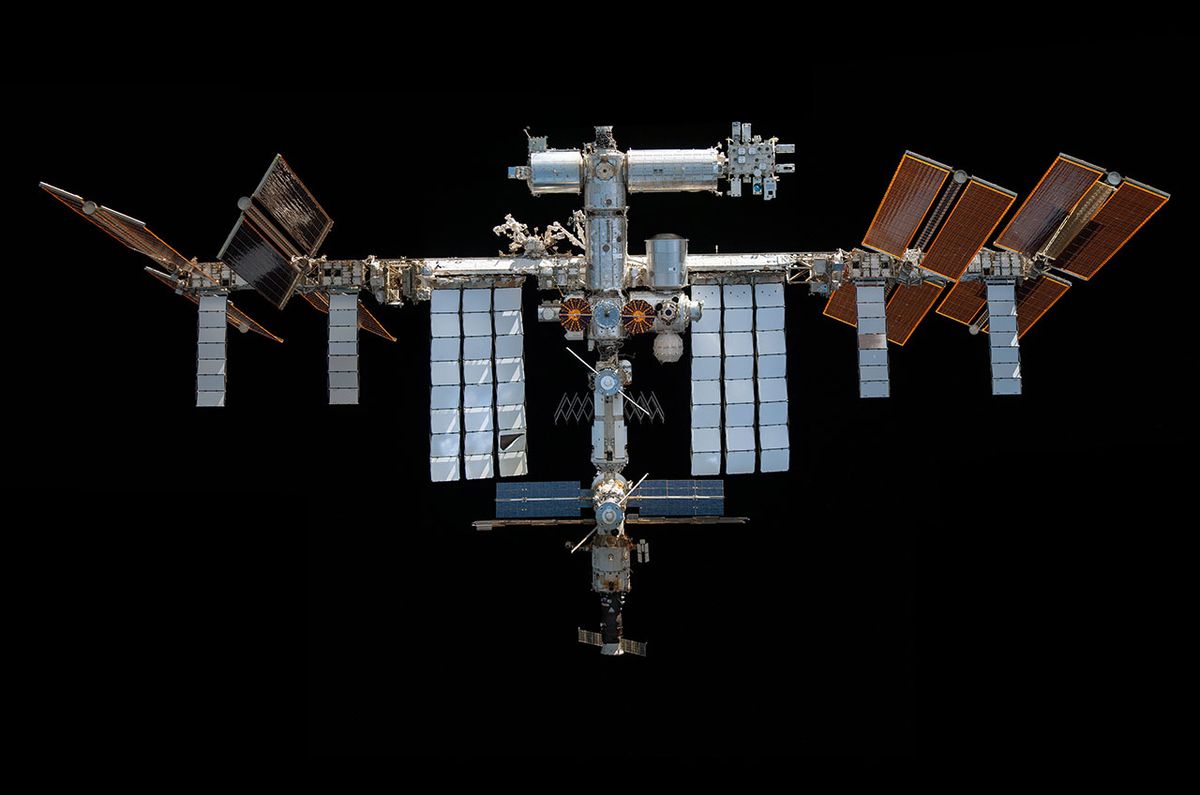
Russia has once again threatened to end its cooperation with the West on the International Space Station (ISS) program.
Dmitry Rogozin, the head of Russia’s federal space agency Roscosmos, decried the sanctions imposed by the United States, Japan, Canada and the European Union — the other ISS partners — on his nation because of its invasion of Ukraine.
“The purpose of the sanctions is to kill the Russian economy, plunge our people into despair and hunger and bring our country to its knees,” Rogozin said via Twitter on Saturday (April 2). (He tweeted in Russian; translation provided by Google.)
“I believe that the restoration of normal relations between partners in the International Space Station and other joint projects is possible only with the complete and unconditional lifting of illegal sanctions,” he added in another tweet.
Live updates: Russia’s Ukraine invasion and space impacts
Rogozin also apparently made this or a similar complaint to the ISS partner agencies in a formal fashion on March 14; on Saturday, he posted on Twitter what he said were some partners’ responses to a letter of that date.
For example, Rogozin shared what he said was a March 30 letter from NASA Administrator Bill Nelson.
“The U.S. continues to support international government space cooperation, especially those activities associated with operating the ISS with Russia, Canada, Europe, and Japan,” Nelson’s letter states, in part. “New and existing U.S. export control measures continue to allow cooperation between the U.S. and Russia to ensure continued safe operations of the ISS.”
Related stories:
Rogozin’s recent tweets do not necessarily mean that the ISS program is in immediate danger of dissolution; the Russian space chief is a blustery figure with a history of hyperbolic statements.
For example, on Feb. 24 — the day that Russia invaded Ukraine — Rogozin said that newly imposed economic sanctions could “destroy” the ISS partnership. But it has been more or less business as usual aboard the orbiting lab since then. On March 30, for example, NASA astronaut Mark Vande Hei came back to Earth in a Russian Soyuz spacecraft with two cosmonauts. The landing went off without a hitch despite the heightened geopolitical tensions.
Mike Wall is the author of “Out There” (Grand Central Publishing, 2018; illustrated by Karl Tate), a book about the search for alien life. Follow him on Twitter @michaeldwall. Follow us on Twitter @Spacedotcom or on Facebook.



